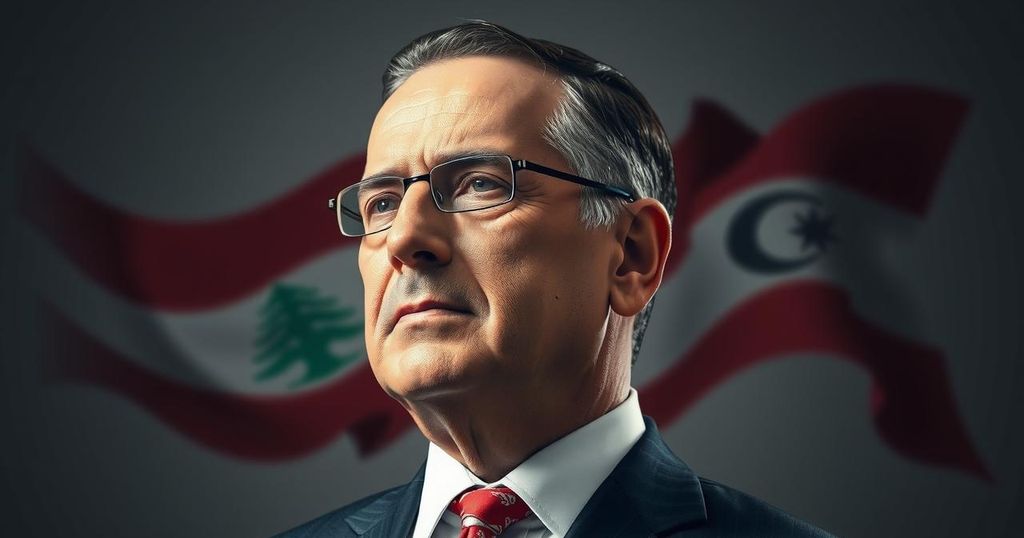Lebanon has elected Joseph Aoun as its new president, ending a two-year political deadlock and raising hopes for national recovery. Aoun calls for reform, emphasizes state control over armed groups, and aims to collaborate on government formation while navigating Lebanon’s ongoing crises and external relations.
After prolonged political stagnation, Lebanon has elected Joseph Aoun as its new president, marking a pivotal moment for a nation burdened by years of socio-economic and political upheaval. His election came through a decisive parliamentary vote on January 9, 2023, following a 60-day ceasefire between Israel and Lebanon. Joseph Aoun, formerly the army commander, received widespread support and aims to steer Lebanon towards recovery, addressing the entrenched issues that have plagued the nation.
Lebanon has been in political limbo since the departure of former president Michel Aoun in October 2022, leaving a caretaker government in charge. The electoral session saw significant regional and international figures extend their congratulations, signifying a collective aspiration for stability. Amid explicitly vocal remarks from Hezbollah on not obstructing Aoun’s nomination, his inaugural speech signified a commitment to transform the political landscape by advocating for necessary reforms.
Aoun’s presidency represents a call for renewal within Lebanon’s political framework, emphasizing the need for legal and judicial reform and pledging to uphold the constitution. His approach to governance includes collaborative efforts in selecting a prime minister and restructuring government positions to enhance political functionality. Additionally, Aoun reaffirmed the state’s exclusive right to weaponry and emphasized military investments to secure Lebanon’s borders, particularly against external threats.
Domestically, Aoun’s election reflects a shift in the internal power dynamics, with Hezbollah’s diminished hegemony noted by political analysts like Elie Al Hindy, who underscored the importance of state-monopolized arms and adherence to international resolutions. Analysts articulated that this shift could herald a revival of political activity, highlighting Hezbollah’s pragmatic support of Aoun in response to urgent international aid requirements. With Lebanese politics traditionally marked by sectarian divides, Aoun’s ascent represents a delicate navigation of both domestic governance and regional stability.
Lebanon has faced significant political instability and economic decline in recent years, culminating in a void of leadership following the end of President Michel Aoun’s tenure in October 2022. The country’s governance operates within a sectarian power-sharing framework, necessitating representation across various religious sects, creating challenges in political consensus. Joseph Aoun’s election is viewed as not only a response to internal demands for reform and stability but also as a reflection of shifting geopolitical pressures and needs for international aid linked to functional governance. The context of ongoing hostilities with Israel further complicates Lebanon’s political landscape, necessitating careful diplomatic navigation.
Joseph Aoun’s election as president has instilled a renewed sense of hope for peace and recovery in Lebanon, with expectations for substantial political reform and improved international relations. His commitment to state sovereignty over armed groups like Hezbollah and the focus on collaboration in government formation signify a potentially transformative phase for the nation. However, the forthcoming challenges of ensuring political stability and managing external pressures will be critical in determining Lebanon’s future trajectory amid its persistent crises.
Original Source: www.chinadailyhk.com






